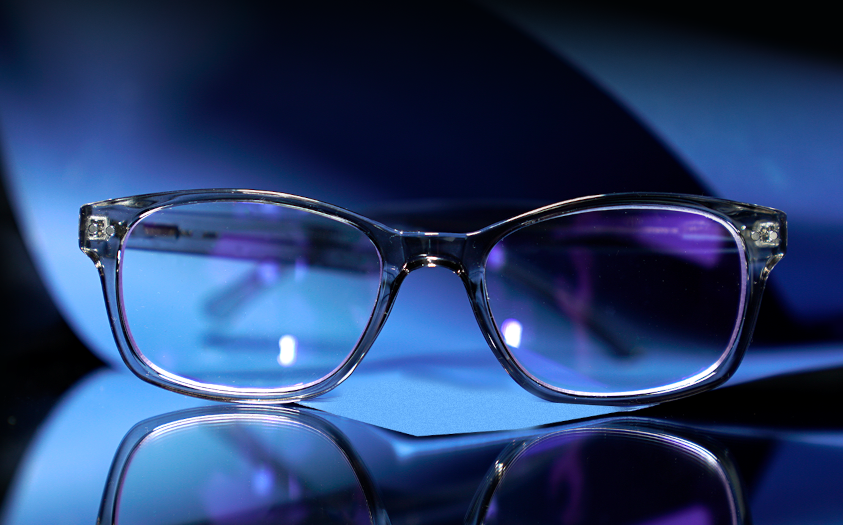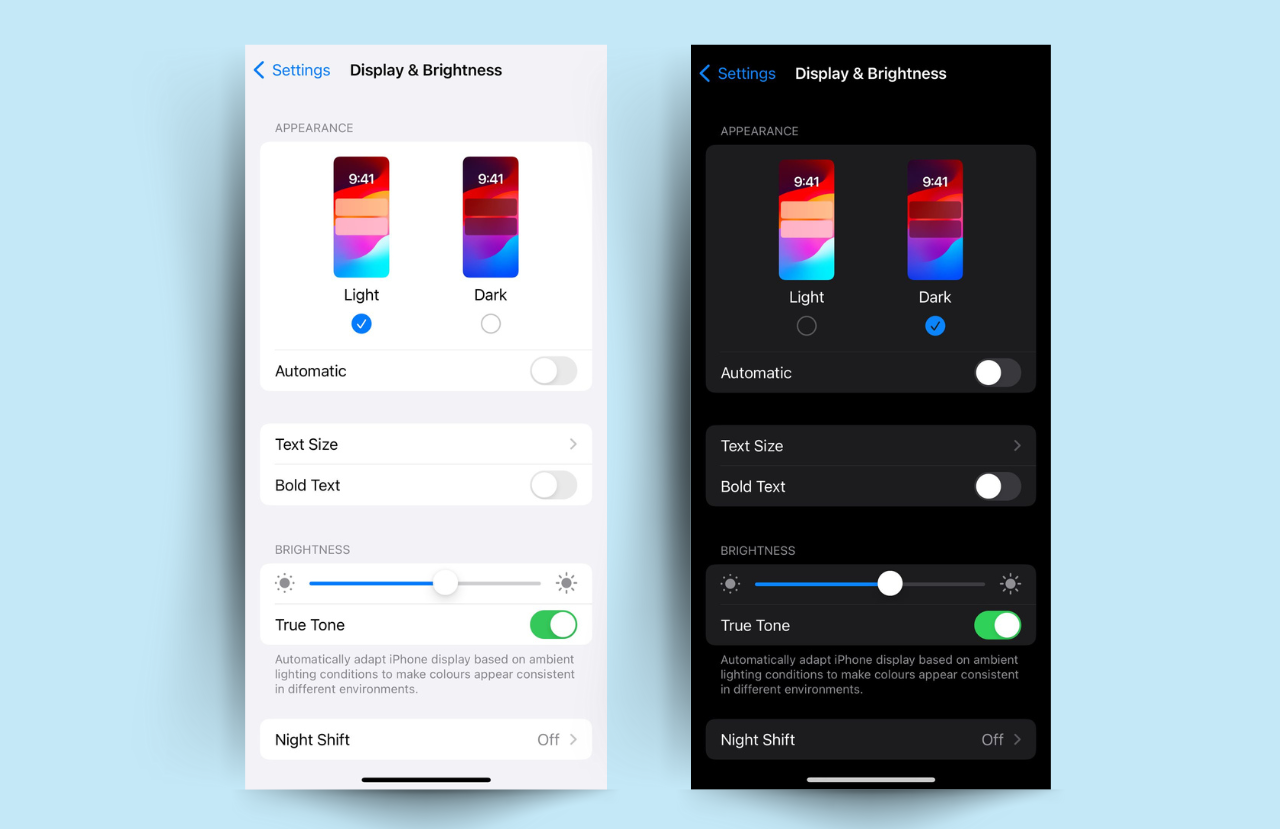If you’re here because you’re concerned about your screen time and you’re wondering whether you need blue light glasses, you’ve landed at the right place.
We can’t avoid screens - they’re as essential as food and drink to us. Some of us can’t even put them down while talking to family or friends! While these devices have improved our learning and quality of life, they also affect everything from our sleep to our creativity. But is screen time damaging enough for us to need blue light glasses?
First, let’s take a look at the facts about screentime to understand how much it is affecting us;
The worldwide average screen time is 6 hours and 55 minutes, as of 2020. The majority of this is spent on phones. For developed countries, such as Australia and New Zealand, this figure is even higher. The average Australian spends 7.3 hours a day in front of screens! Out of this 5.5 hours a day is spent on their smartphone. This is one-third of our waking hours!
These figures may sound exaggerated, but screen time sneakily adds up -scrolling Instagram, reading books, playing games and watching videos. And these figures exclude other screens such as TV and billboards.
Do I need blue light protection on my glasses?
The use of screens is linked to many side effects. Scientists have found that screens negatively affects kids' brain development, and physical development.
In both adults and children, more screen usage is found to be linked with shorter sleep duration, decreased sleep quality and longer sleep onset delay. (sleep onset delay is the time it takes for you to fall asleep.)
But why do screens cause these side effects? Is it because of the ‘content’ we see- comparing ourselves to models on social media? Or is it due to the nature of screens themselves? But according to Harvard Health, the main culprit in screens is the blue light that they emit. Excess blue light from artificial sources is linked with the other symptoms- sleep problems and eye damage, which is why we need blue light blocking glasses.
What is blue light?
Blue light is one of the colours in the spectrum of light. Sunlight is made of all the colours of the rainbow (red, orange, yellow, blue, green, indigo and violet.) Out of these colours, blue light has the highest energy. And unfortunately, screens emit more blue light than any other colour.
Blue light has short wavelengths, in the range of 400nm-500m and carries more energy. (Long wavelengths = less energy) This is in contrast to red light and colours on the other end of the spectrum which have longer wavelengths and low energy, as we can see from the image below;

Blue light is also the primary colour of light that is emitted by LEDs, fluorescent lights and streetlights.
Why do I need blue light glasses?
If you’ve been asking yourself the question, ‘Do I need blue light glasses,’ it’s important you first understand how blue light affects your body.
Blue light is a ‘zeitgeber.’ A zeitgeber is an environmental cue that acts as a cue in the regulation of the body's circadian rhythms. Blue light, temperature, eating and drinking patterns are all zeitgebers. A 2011 study by German researchers found that blue light is as strong as sunlight as a zeitgeber. In the study, the effect of blue light on changing the circadian rhythm or ‘24-hour clock’ of the body was measured, on two groups of people. One group was kept under ‘warm light (4000K), while the other group was exposed to blue-enriched light (8000K), which is the type of light found in LEDs that populate our schools, offices and homes. The group under the warm light’s rhythms were synchronized with natural dawn and sunset, while the experimental group’s rhythms changed to adapt to the timings of the blue light exposure (waking up and sleeping later than natural dawn and sunset hours).

If you’re asking yourself the question ‘why do I need blue light glasses,’ it’s important you know the effect blue light can have on your eye health. Aside from its zeitgeber properties, blue light has been found in numerous studies to be damaging to the eyes;
The retina of the eye is where most of the blue light from the atmosphere falls. The retina is at the risk of ‘macular degeneration’ a disease in which there is gradual loss of central vision over time. This occurs mostly in older adults, which is why it is called ‘age-related macular degeneration.’ Studies have shown that excessive blue light exposure can damage the cells in the retina, in experimental conditions. This damage is similar to the damage seen in macular degeneration.
Even if we ignore the risk of macular degeneration, humans didn’t evolve to stare at bright screens all day. And our eyes are dealing with the consequences. Almost 58% of people who work with computers experience ‘Digital Eyestrain’ or ‘Computer Vision Syndrome.’
Computer Vision Syndrome symptoms include
- Eyestrain
- Blurred Vision
- Neck and back pain
- Headaches
Do I need blue light glasses?
Blue light glasses aren’t prescription-based and you don’t need severe symptoms to use them because they are a preventative measure against future issues. If you’re suffering from any screen-related eye issues such as light sensitivity, dry eyes, migraines or digital eyestrain, etc. then blue light glasses are a must for quick relief or to aid with recovery.
However, if you’re interested in improving your sleep schedule, motivation and productivity, then take a look at your routine;
- Do you use screens for more than 2 hours a day?
- Do you use screens after sunset?
- Are you exposed to artificial lighting after sunset?
If any of the above is a ‘yes’ for you, then blue light is altering your natural circadian rhythm. And wearing blue light glasses will help sync your rhythm to natural light patterns and improve your sleep.
The only question remains of choosing the right pair that’s in line with your needs.
What strength blue light glasses do I need?
Blue light glasses are of two types;
Daytime blue light glasses:
Daytime blue light glasses filter 50-70% of blue light across the entire spectrum (380-450nm). They don’t block 100% of blue light because a small percentage of blue light is needed during the day to keep your circadian rhythm in check.

For light screen users, the ScreenTime Computer Glasses range glasses work best. These glasses are available in a range of stylish models and have no tint. These glasses block 50% of the full spectrum of blue light.
For heavy screen users (including gamers) and those who are suffering from eye damage, the DayMax Blue Light Glasses range glasses work best. These have a slight amber tint and provide more protection (70%) than transparent lens glasses.
Night-time blue light glasses:
Blue light glasses for night block 100% of blue light. This is because, after sundown, our eyes aren’t supposed to be exposed to any blue light at all.

If you want to increase melatonin levels and improve sleep quality, the SunDown Blue Blocking Glasses Range is for you. These glasses have an amber tint and they block 100% of the full spectrum of blue light.
If the colour change isn’t something you’d be bothered by, we suggest you go for the NightFall Blue Blocking Glasses range. These glasses block turquoise as well as blue. Studies have shown that the green light spectrum from 455-550nm has the same effect as the blue light on melatonin. These glasses are the best protection if you suffer from sleep problems and insomnia.
When buying any blue light glasses, check the spectrum report on the manufacturer's website, for proof that the glasses are actually filtering the right wavelengths. For all you know, you could be wearing a normal pair of glasses with coloured lenses that do nothing to filter blue light!
All of BlockBlueLight’s glasses have lab-grade spectrum reports attached with the product details. Secondly, many glasses only filter a small range of the blue right spectrum, which leaves your eyes unprotected, so check the report to see if the full range is being targeted.
You can read about the science behind our lenses here or learn more about what to look for when buying blue light glasses, so you don’t get scammed.





